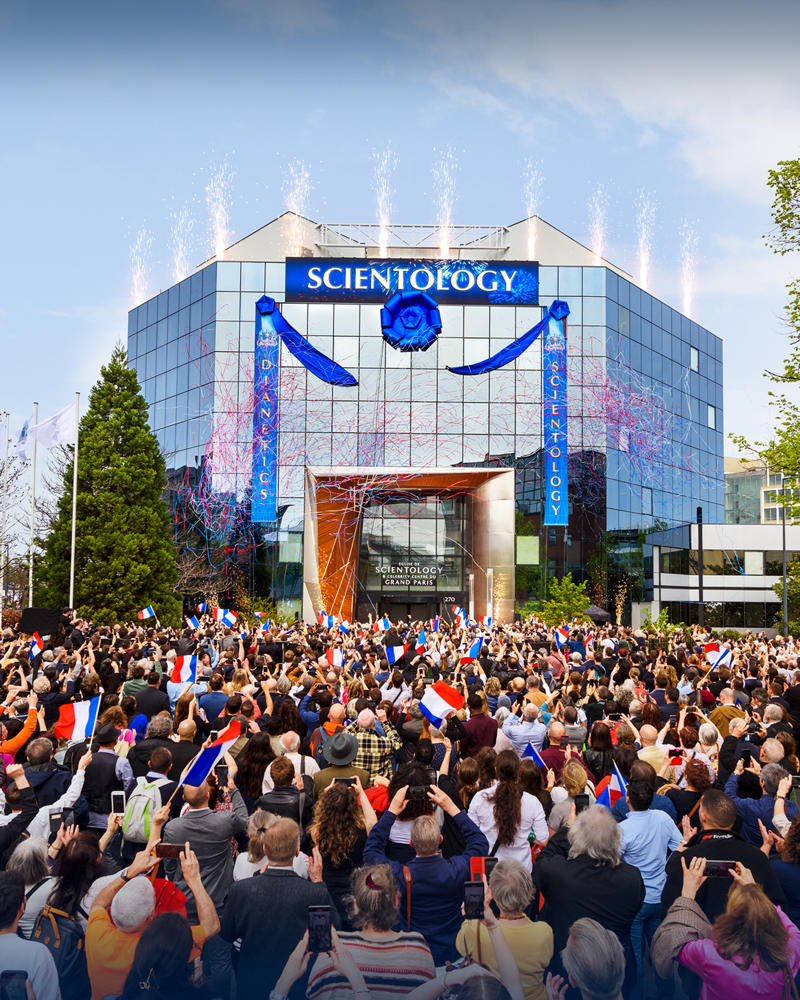Discovering Scientology: Insights right into Its Practices and Approach
Discovering Scientology: Insights right into Its Practices and Approach
Blog Article
Debunking Misconceptions: Separating Fact From Fiction About Scientology

Beginnings of Scientology
The beginnings of Scientology trace back to the mid-20th century when L. Ron Hubbard, a sci-fi author, started the belief system in the 1950s. Hubbard's advancement of Scientology came from his earlier self-help system called Dianetics, which he presented in the 1940s - Scientology. The change from Dianetics to Scientology noted a change towards an extra thorough spiritual ideology that included aspects of psychology, Eastern spiritual practices, and Hubbard's very own theories on human presence
Hubbard's exploration into the human mind and spirit resulted in the development of Scientology as a faith focused around the concept of spiritual knowledge and self-improvement through a process called auditing. Auditing, a form of spiritual therapy, aims to help individuals get rid of psychological and psychological obstacles, known as engrams, that hinder individual development and recognition.
As Hubbard's teachings acquired appeal, Scientology progressed right into a global movement with a considerable following. In spite of criticisms and controversies surrounding its methods and beliefs, Scientology proceeds to attract followers looking for spiritual satisfaction and personal development.
Core Beliefs and Practices

One more fundamental facet of Scientology is the principle of the Thetan, the spiritual essence of a person that transcends the physique. Followers intend to understand and enhance their connection to the Thetan via numerous techniques such as study courses and filtration rituals.
The Church of Scientology also puts a strong emphasis on the significance of personal obligation and the idea that individuals have the power to shape their very own destinies. With adherence to honest guidelines and the search of self-improvement, practitioners of Scientology make every effort to accomplish better degrees of happiness, success, and spiritual satisfaction.
Objections and disputes
In the middle of Scientology's core ideas and practices exists a landscape noted by disputes and criticisms that have stimulated extreme dispute and analysis. One of the significant criticisms leveled against Scientology is its deceptive nature and the alleged exploitation of its participants. If they try to leave, former participants have actually spoken out regarding feeling pressured to contribute big amounts of money to the Church and encountering rough consequences. Furthermore, Scientology's condition as a tax-exempt spiritual organization in some nations has been a factor of opinion, with doubters saying that its methods are look here much more akin to a business than a religion. Scientology.
An additional area of dispute surrounds the Church's treatment of dissenters and critics. Records have emerged of harassment, scare tactics, and lawful hazards guided at those who speak up against Scientology. This has elevated concerns regarding freedom of expression and the company's commitment to openness and liability.
While Scientology has vehemently refuted many of these check over here accusations, the criticisms and conflicts surrounding the Church proceed to fuel public suspicion and scrutiny.
Scientology's Influence in Society
With its presence in different markets of culture, Scientology's impact can be observed in both obvious and subtle methods, forming understandings and communications. In the world of education, the Church of Scientology has dealt with analysis for its initiatives to introduce its teachings into schools through programs like "Applied Scholastics." Critics suggest that such initiatives blur the lines between church and state, possibly influencing the academic experiences of students. Furthermore, Scientology's influence reaches the realm of psychological health, where its views on psychiatry and psychology have actually sparked disputes within the clinical area. The church's anti-psychiatry position has actually led to uncertainty and worries concerning the effectiveness of psychological wellness therapies. In the realm of amusement, Scientology's organization with prominent celebrities has accentuated the faith, both positively and adversely. The participation of famous numbers in Scientology has, sometimes, served to promote the religion, while in others, it has actually attracted criticism and raised questions concerning the church's techniques and beliefs.
Debunking Common Misconceptions
The Church of Scientology is lawfully acknowledged as a religious beliefs in many countries, consisting of the United States, where it has tax-exempt standing. Like other religious beliefs, Scientology offers spiritual guidance and techniques for its members.
An additional false impression is that Scientology forces its participants to reduce connections with their families. In truth, the church highlights the significance of family more helpful hints connections and encourages participants to preserve healthy and balanced connections with their enjoyed ones.

Conclusion
To conclude, it is very important to separate fact from fiction when talking about Scientology. By analyzing its origins, core ideas, debates, and influence in culture, we can disprove typical misunderstandings bordering this religion. It is vital to come close to the topic with a important and objective frame of mind in order to comprehend Scientology precisely and without predisposition.
Rooted in a foundation of spiritual knowledge and personal growth, Scientology's core ideas and techniques include a varied variety of principles and routines. Central to Scientology is the belief that people are never-ceasing spiritual beings who have actually forgotten their true nature. The involvement of popular figures in Scientology has, in some instances, served to popularize the religious beliefs, while in others, it has actually drawn criticism and increased concerns regarding the church's beliefs and techniques.
The Church of Scientology is legitimately identified as a religion in lots of nations, consisting of the United States, where it has tax-exempt condition. Like other faiths, Scientology gives spiritual guidance and techniques for its members.
Report this page